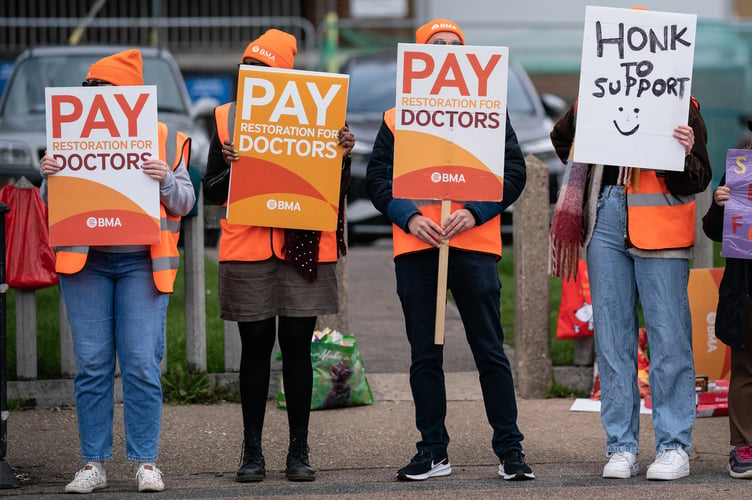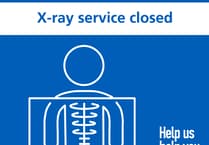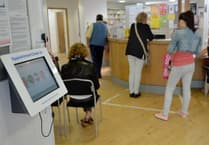Thousands of appointments and operations were cancelled by Royal Cornwall Hospitals NHS Trust because of NHS strike action over the last year, new figures show.
It comes as the number of inpatient and outpatient appointments and operations cancelled due to strikes across England surpassed 1 million following the first co-ordinated strike by junior doctors and consultants in history earlier this month.
The British Medical Association said it did not want to cause further disruption to patients' care, but the strikes "are about the long-term sustainability of the NHS and ensuring there are trained doctors around to care for all patients in the future".
NHS England figures show Royal Cornwall Hospitals NHS Trust has cancelled 330 appointments or operations initially scheduled between September 19 and 23 as a direct result of strike action by NHS staff.
It means the total number of treatments cancelled grew to 6,237 over the last year.
Strikes have been conducted by various NHS staff members, including consultants, junior doctors, nurses, and ambulance workers.
Another joint strike by consultants and junior doctors is planned for October 2, 3 and 4, the BMA announced.
Health Secretary Steve Barclay said: "Today marks the grim milestone of over 1 million appointments cancelled as a result of strikes, with co-ordinated and calculated industrial action by the BMA creating further disruption and misery for patients and NHS colleagues.
"Regrettably, the BMA is threatening to escalate strike action again next month, which would mean the number of cancellations rising further and adding to the pressures on health services as we head into winter."
Mr Barclay said medics have "received a fair and reasonable pay rise as recommended by the independent pay review bodies".
He added: "Those who started their hospital training this year are receiving a 10.3% pay increase, with the average junior doctor getting 8.8% and consultants are receiving a 6% pay rise alongside generous reforms to their pensions, which was the BMA’s number one ask.
"My door is always open to discuss how we can work together with NHS staff to improve their working lives, but this pay award is final so I urge unions to end this damaging disruption."
Professor Phil Banfield, council chairman of the BMA, said the Government has not acknowledged the "cost and value of medical care", and said it must improve the recruitment and retention of doctors.
Professor Banfield added: "The longer the Government buries its head in the sand, the more both strikes and waiting lists cost the public purse. It’s a no-brainer to invest in the future of the NHS workforce, rather than waste further money refusing to pitch a credible pay offer.
"Our door has been open for over a year and we hope for the sake of our patients that the Government eventually listens."




